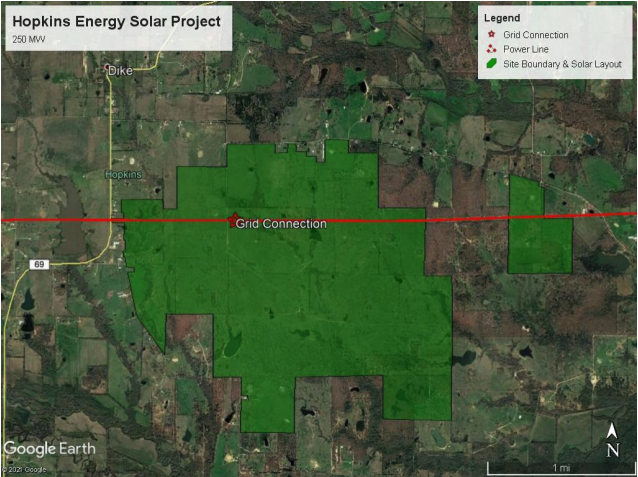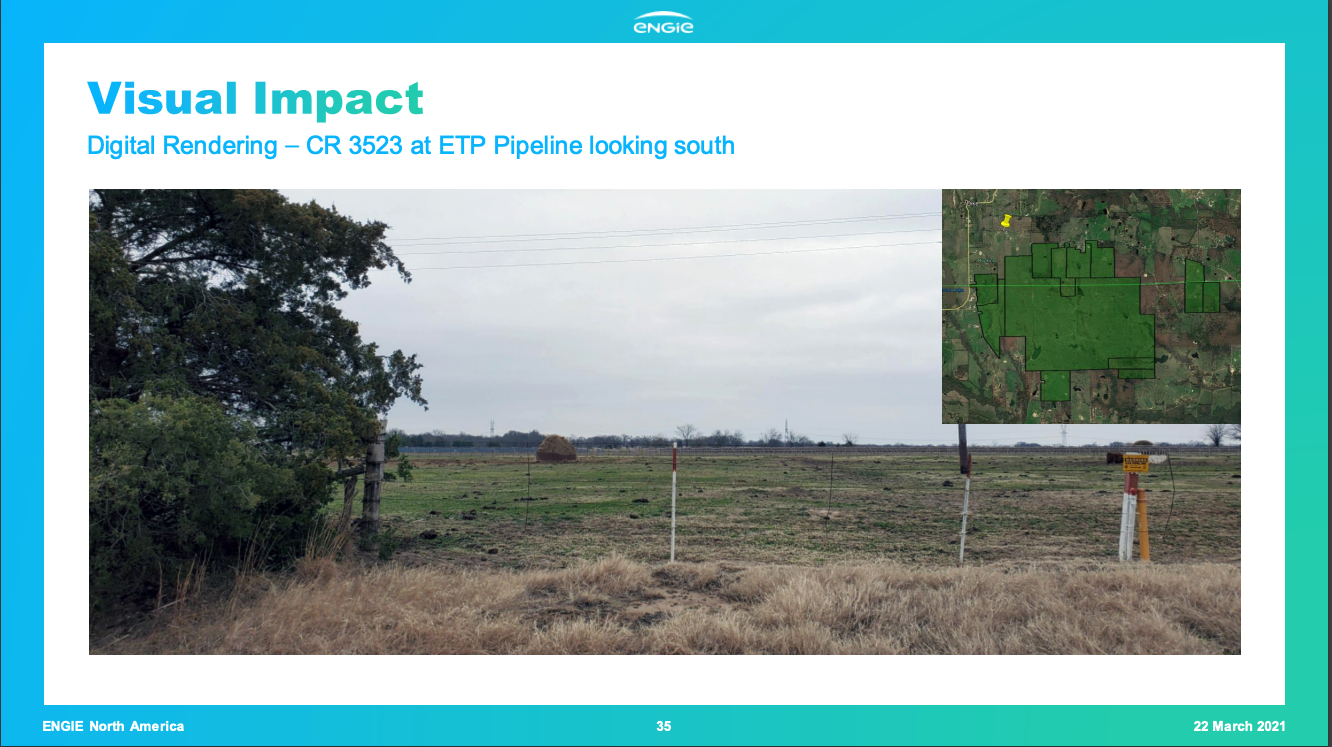The Threat to Texans’ Water Supply
Dike, Texas, an unincorporated community in Hopkins County, has been struggling to hold the Hopkins Solar Project accountable to promises made. The project is owned by Engie SA, a French multinational utility company with headquarters in La Défense, France.


According to Engie, this 250 Megawatt project consumes an area of approximately 1,850 acres of what was previously ranching land.
When the company held a town hall meeting in March 2021, they used the photograph (left) of the land to be transformed, with computer-generated solar panels in the distance. They claimed that changes made to the land would be reversible at the end of the project’s term.




